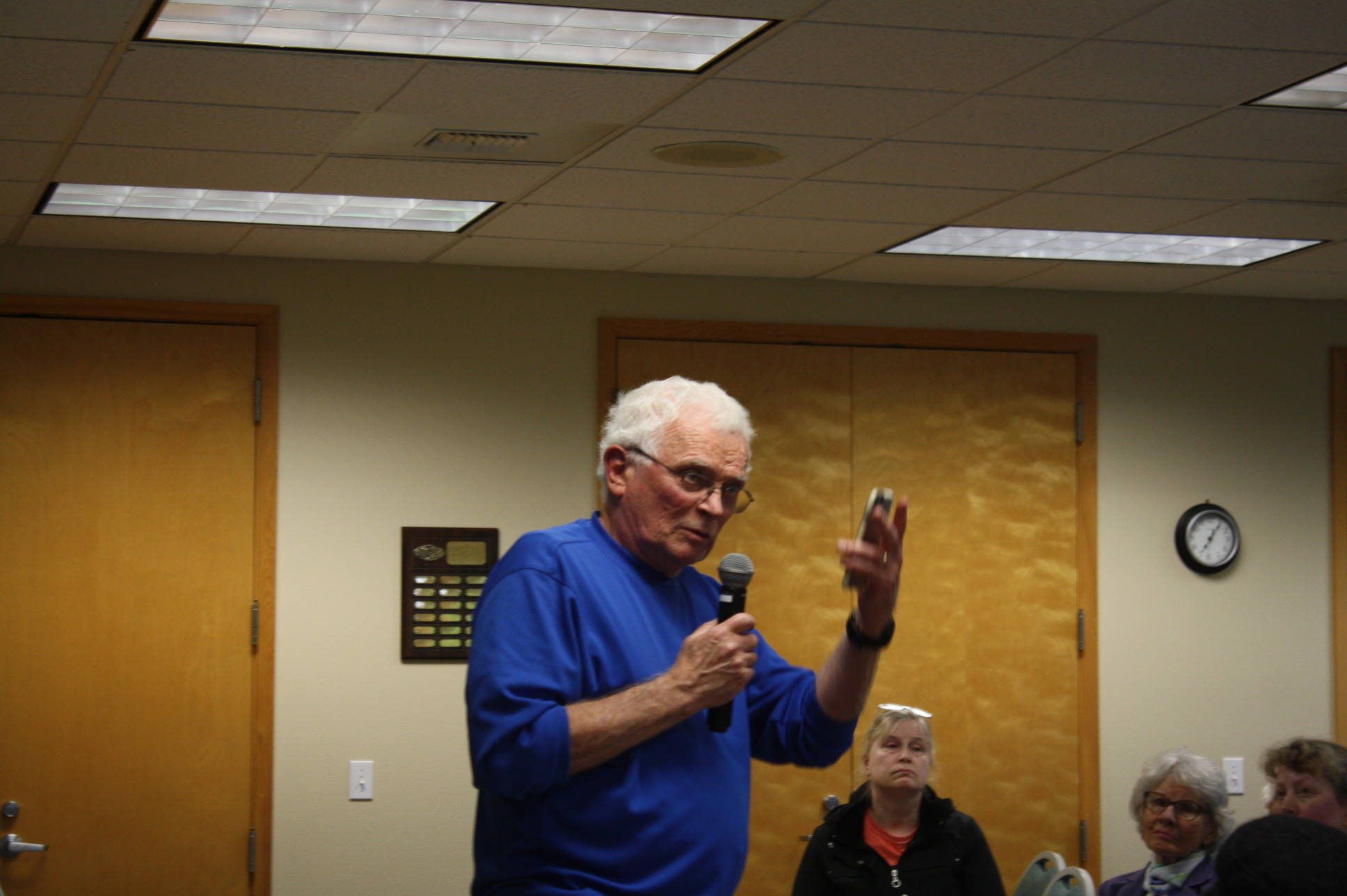Emergency responders, doctors, nurses, county council members and insurance agents were among the nearly 60 concerned citizens packed into the Mullis Center to learn about denial issues by San Juan County’s primary insurance provider, Kaiser Permanente.
“The main problem with Kaiser is that they are using mainland algorithms, and that doesn’t work for us. We are a ferry-served community surrounded by water,” said Dr. Michael Sullivan, San Juan County’s emergency services medical director, at the town hall meeting that took place on April 25.
The event was held to provide Kaiser members, and others interested in the issue, updates and information regarding the recent rash of denials of coverage for emergency air ambulance flights to nearby hospitals. It followed a meeting of county health and government officials, and representatives from the state insurance commissioner’s office, Kaiser, Airlift Northwest and Island Air Monday were present on April 22.
Speakers at the town hall included Sullivan; Dr. Warren Appleton, San Juan County Hospital District No. 1 commissioner; Airlift Northwest Executive Director Chris Martin; and Will Hamilton from Island Air Ambulance.
Kaiser Permanente became San Juan County’s primary insurance carrier in June 2018. In September, islanders began receiving air ambulance denials from Kaiser resulting in bills of thousands of dollars.
Sullivan noted one case where an elderly woman had been struck by a car, suffering multiple fractures. She was flown to a nearby hospital and Kaiser originally denied her insurance claim, he said.
In another case, Sullivan explained, a woman drove herself to the emergency center at the Peace Health Hospital.
“She had severe abdominal pain, nausea and was throwing up. Yet, she drove herself in,” Sullivan said.
Sullivan continued, adding that he was able to diagnose her fairly quickly with acute appendicitis, scheduled surgery with a doctor at the Anacortes hospital and gave her pain medications to provide her some relief for the hour until surgery could take place. She had no one to drive her, Sullivan said, and a ferry trip would have taken too long, so she was flown. Kaiser denied that claim, he said, visibly angry.
As a result of Kaiser’s denials, multiple presenters said people could hesitate or even neglect to call 911 when they are in need of urgent care.
According to Sullivan, locals are leery of seeking the health care they need due to financial concerns. He explained that emergency responders have strict guidelines they follow before determining a patient needs to be flown off-island.
“We don’t just kidnap you and stick you on a helicopter,” he said, noting that emergency care operates in the opposite manner as family health. While family health runs on the basis that people are healthy until shown they are not, a patient in an emergency is presumed to be dying until proven they are well.
“Don’t let the Kaiser cloud keep you from getting medical care,” Appleton said. He then explained the process of appealing a denial. The first step is to work with health providers; Airlift Northwest or Island Air Ambulance will initiate a claim.
Both providers have experience and a high success rate, Martin added. Of Airlift’s 50 claims waiting to be processed with Kaiser, 14 are in the appeal stage, she explained.
“We want to get you safe and well,” Martin said. “Follow your medical provider’s advice, and don’t worry about the bill.”
Appleton noted that due to the county response, the Office of the Inspector General, the federal government agency that oversees health insurance companies, is now looking into Kaiser’s denials. According to Appleton, Kaiser has until May 1 to turn over documents pertaining to the claims.
Appleton was also cautiously optimistic Kaiser representatives heard concerns during the April 22 meeting, and was beginning to understand the unique situation of living on an island. San Juan County Hospital District No. 1 chairmember Dr. Michael Edwards agreed.
“I think we will win,” he said.



